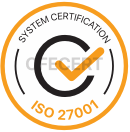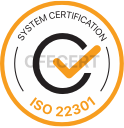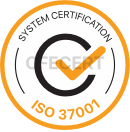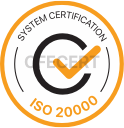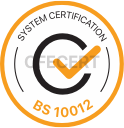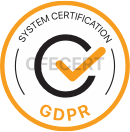The updates between ISO 9001:2015 and ISO 9001:2024 aim to make quality management systems more relevant to the needs of the current era and the evolving business landscape. Although the ISO 9001:2024 standard has not yet been officially published, the main differences compared to the draft (DIS – Draft International Standard) version are as follows:
1. Climate Change Aspect
- 2015: The standard did not directly address climate change as a requirement. Environmental issues could be considered indirectly within the context of the organisation, but these were not mandatory.
- 2024: Organisations must directly consider climate change when assessing their internal and external context. This makes it imperative to develop strategies for environmental sustainability, reducing carbon footprint, and addressing climate risks.
2. Sustainability
- 2015: The principle of sustainability was not explicitly emphasised in the quality management system and could be indirectly addressed through environmental factors or legal compliance.
- 2024: The concept of sustainability is clearly emphasised, and organisations are expected to ensure environmental, economic, and social sustainability in their activities.
3. Digitalisation
- 2015: No references are made to concepts such as digitalisation or digital transformation. Information technologies appear only in the context of information management, and then only on a limited basis.
- 2024: Digitalisation has become an important element to consider within the context of the organisation and process design. This integration incorporates issues such as data management, automation, and cyber security with quality management.
4. Risk-Based Approach
- 2015: Risk-based thinking was primarily linked to quality management objectives. It was typically evaluated regarding product/service quality and customer satisfaction.
- 2024: Environmental, Social, Governance impacts must also be considered when assessing risks. In other words, social responsibility and governance are now as important as quality.
5. Scope of Related Parties
- 2015: Related parties were restricted to fundamental groups such as customers, employees, and suppliers.
- 2024: The definition of interested parties was expanded. Broader environmental and social actors should now be considered, including environmental organisations, local communities, investors, and regulators.
6. Terminology Update
- 2015: Traditional terms were used. Some concepts were inadequate for today’s business world and technological developments.
- 2024: Terminology was updated. A more inclusive, contemporary and gender-neutral language was preferred. Some definitions were also clarified.
7. Evaluation of Quality Objectives 2015:
- 2015: Quality objectives were set, monitored, and updated as necessary, but their effectiveness (how well they were achieved) was not analysed in depth.
- 2024: In addition to setting objectives, the degree to which these objectives are achieved, their impact on results, and their contribution to continuous improvement should be systematically analysed.
Get in touch with us to learn how your organisation could benefit from ISO 9001! sales@cfecert.co.uk



